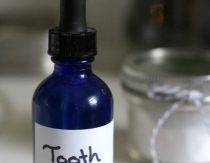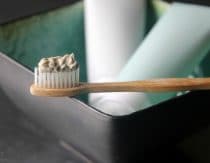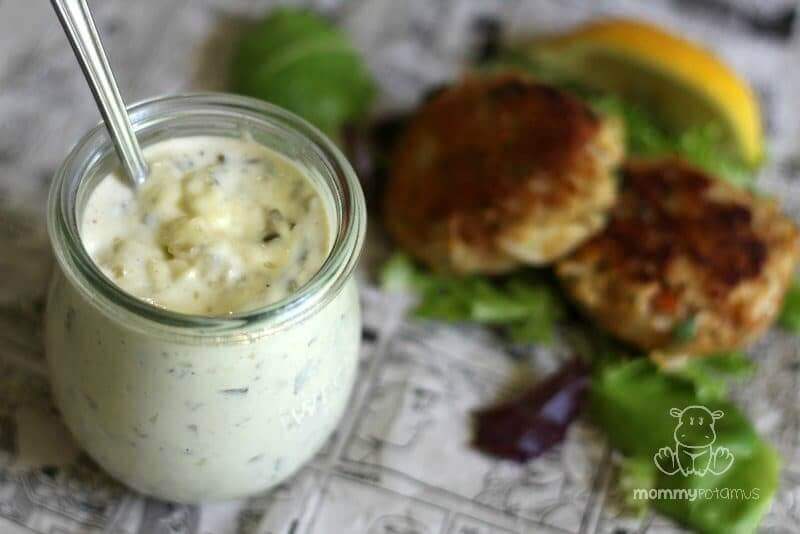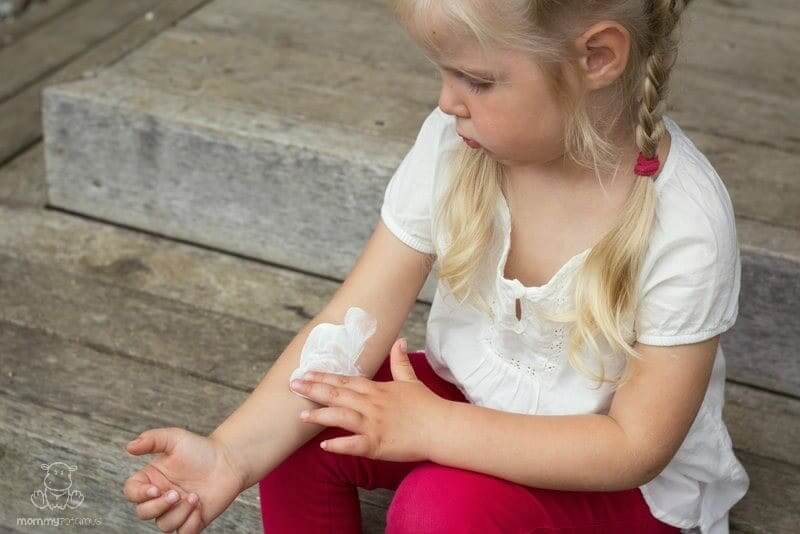
It’s a toss up with “best cooker ever” . . .
But I think my favorite job title has to be “best boo-boo kisser south of Puckett’s station.” Getting paid in kisses is even better than compliments about my baking skills, you know?
But what do we do when kisses are not enough? For many who struggle with eczema (or whose children suffer from it), the answer seems to be obvious: topical steroids.
Unfortunately, they’re not actually recommended for long-term use. According to the National Eczema Foundation’s guidelines, they should not be used continuously for more than two to four weeks due to risk of dependency. Of course, in practice they’re often used much longer than that. So is this warning legitimate or frivolous, like those warnings not to swallow coat hangers?
Janelle Norman, whose skin peeled off when she weaned herself from steroid creams, urges us to take it seriously. “I looked in the mirror, and my face was gone,” she shares in this article about her story. (Warning: The photos are graphic.)
Available in both over-the-counter and prescription form, topical steroids and have been reported to create dependency even when used for less than two weeks, and according to some practitioners they’re more of a band-aid approach than a solution.
“Using cortisone cream to fix eczema is a bit like painting a rickety house that’s about to fall down. It makes it look better, and you may feel better for a short period of time – but ultimately the underlying issues must be healed,” writes Emily Bartlett, LaC, author of The Eczema Cure. (Source)
What is eczema?
Chris Kresser, LAc, writes that “most of you have heard of leaky gut by now, but what about ‘leaky skin’? The main function of the skin is to act as a physical, chemical and antimicrobial defense system. Studies have shown that both stress and gut inflammation can impair the integrity and protective function of the epidermal barrier. This in turn leads to a decrease in antimicrobial peptides produced in the skin, and an increase in the severity of infection and inflammation in the skin.” (source)
In other words, Kresser and many other researchers believe that eczema may sometimes be an expression of a gut imbalance. So what do we do with this information? Since boo-boo kisser is about as official as things get for me professionally I’ll leave that to you and your trusted healthcare provider. I am not a doctor, this is not medical advice, none of these statements have been evaluated by the FDA, and they are not intended to diagnose, treat, or cure any disease. Please see full disclaimer here if you need more convincing.
However, I want to pass along several dietary and lifestyle changes that others have found helpful, many of which can be found on mainstream medical resources.
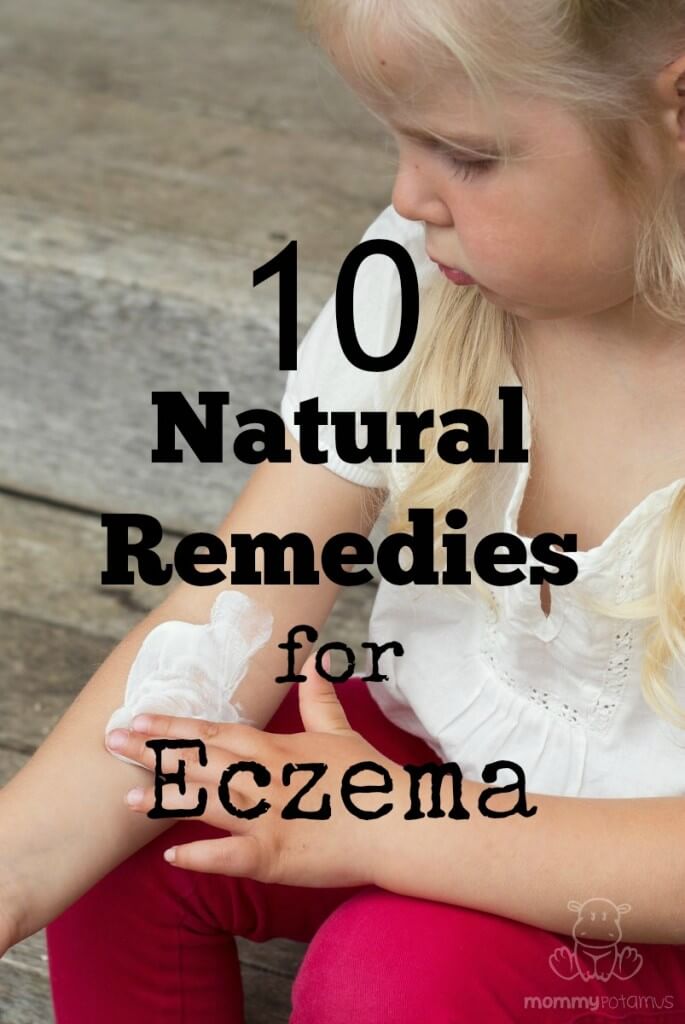
1. Probiotics
According to Chris Kresser, supporting balanced gut flora is helpful for nurturing skin health. (source) One of the most often suggested ways to go about this is by consuming fermented foods or a high-quality probiotic. (I use both a soil-based and lactic-acid based probiotic. Both are listed on my resources page.)
In addition to being taken internally, they can be directly applied to skin. “When you apply a probiotic directly it can actually act as a barrier because it’s competing with the bad bacteria from taking hold,” Whitney P. Bowe, a board-certified dermatologist and clinical assistant professor of dermatology at Icahn School of Medicine at Mt. Sinai Medical Center in New York, told ABC News.
I have friends who have used both yogurt and kombucha scobys topically. Post on that coming soon! (Or eventually depending on your definition of soon.)
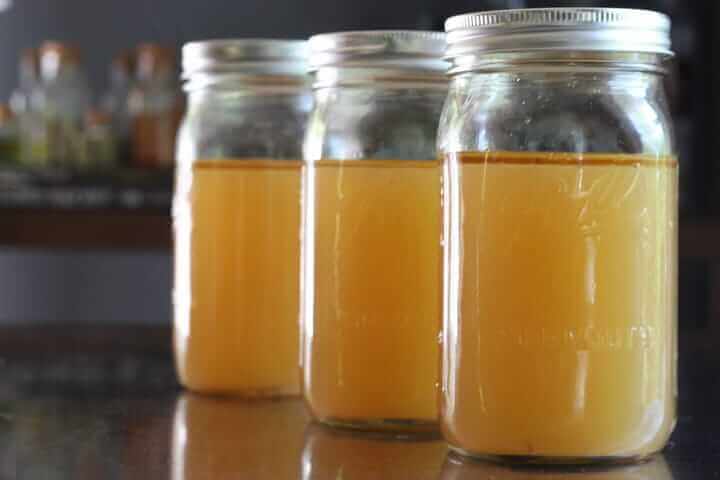
2. Add Foods That Support Gut Health
Several healing protocols, including the GAPS diet and autoimmune paleo protocol, focus on improving gut health. Here are a few of the foods they emphasize:
Healthy Fats & Essential Fatty Acids
According to this PubMed analysis, adding a GLA-rich oil such as evening primrose oil to the diet may be helpful. Many families have also reported that coconut oil was helpful for them, possibly because it is a rich source of immune-boosting lauric acid. Fish oils such as raw cod liver oil are also rich in high-quality essential fatty acids.
Vitamin A Rich Foods
According to Chris Kresser, “While physicians prescribe synthetic retinoids to treat skin conditions including acne, eczema, psoriasis, cold sores, wounds, burns, sunburn, and ichthyosis, it is possible to obtain similar effects from consuming natural sources of pre-formed vitamin A.” (source)
My favorite sources of pre-formed vitamin A (which preferred over it’s precursor, betacarotene, because many of us do not have the ability to convert it well) are raw cod liver oil and chicken liver. I took me awhile to get used to the idea of eating liver, but I’ve found ways to make it palatable for my family. This bacon and chicken liver pate and ultimate chili have both gotten great reviews, and my kids don’t gag when I give them the raw cod liver oil listed on my resources page.
Bone Broth & Grass-Fed Gelatin
According to Dr. Ernie Garcia, MD and The Paleo Mom Sarah Ballantyne, PhD, “Including glycine-rich foods like homemade bone broth and organ meat can help speed the healing of both the gut and the skin (glycine is an essential component of connective tissue and the extracellular matrix that acts as a scaffold for cells). ” Grass-fed gelatin is also rich in glycine and another beneficial amino acid, proline.
3. Remove Triggers
As important as it is to get the good stuff in, it’s equally important to remove inflammation causing foods. Here’s a list to consider.
4. Magnesium
Magnesium is thought to be helpful for a variety of reason. First, it is often called the “anti-stress” mineral, which may be helpful if you’ve found that one of your triggers is stress, whether emotional or physical in origin. This study also suggests that magnesium supports histamine regulation, which may be helpful because histamine plays a role in inflammatory response. (source)
Magnesium is best absorbed through the skin in the form of epsom salt baths or magnesium spray. (I link to the brand I buy on my resources page.)
5. Sunlight
While heat and sweating are generally avoided because they can exacerbate a flare, some research suggests that sunlight may be a beneficial complementary therapy. According to this study published in The Lancet, “Narrow-band UVB is an effective adjunctive treatment for moderate to severe atopic eczema, and the treatment is well tolerated by most patients.”
6. Raw Apple Cider Vinegar
Astringents such as apple cider vinegar can be helpful for weeping eczema. For apple cider vinegar, it is usually suggested that individuals dilute it by adding 1 part purified water to 1 part apple cider vinegar. Those with very sensitive skin may need to dilute more.
7. Apply Barrier Moisturizers
According to this study, pediatric patients who were given extra virgin coconut oil topically had better clinical results than those who were given mineral oil. Other moisturizers that individuals have found helpful are tallow balm, tamanu oil, argan oil, shea butter and cocoa butter.
8. Switch To Non-Toxic Personal & Home Products
While not exactly a natural remedy, so many parents reported that changing personal/home care products made a difference for them that I felt it was worth including. According to the University of Maryland Medical Center article I mentioned earlier, common irritants that may exacerbate eczema include “wool, synthetic fibers, soaps and detergents, perfumes, cosmetics, lanolin, certain chemicals, such as chlorine and solvents (including mineral oil), cigarette smoke, dust, and sand.”
When I transitioned to natural personal care products, these are some of the first I prioritized:
- Deodorant
- Tooth powder
- Pure coconut oil soap with just three ingredients
- Non-toxic sun lotion bars
- Shampoo – This shampoo bar leaves hair soft and moisturized without a hint of greasiness.
And here are my favorite basic cleaners:
- Homemade natural laundry detergent – This is a big one because sometimes eczema is due to perfumes and other chemicals used in conventional detergents.
- Citrus splash all-purpose cleaner – We use this in the kitchen and bathroom.
- Homemade soft scrub
And of course, cotton is the best clothing option because it allows the skin to breathe.
9. Bath Filters (And Fewer Baths)
The Wall Street Journal recently reported on a study published in the Journal of Allergy and Clinical Immunology which suggests that bathing less often and moisturizing more often may prevent symptoms of eczema in babies. They recommend no more than 2-3 times per week.
Some individuals have reported that bath chemicals such as chlorine irritate their skin. A bath filter or vitamin C tablets can help neutralize chlorine. (The tablets I used before moving to a homestead with spring water are listed on my resources page.)
10. Herbs, Essential Oils & Hydrosols
Though not a cure by any means, when used properly essential oils can be very soothing to many types of irritated skin. We use lavender and tea tree in our bug bite balm, and plantain for our homemade first-aid ointment. Lavender, chamomile, helichrysum, cedarwood and geranium are all soothing.
Calendula salves are likewise soothing, and for those who cannot tolerate stronger formulations hydrosols might be a good option. (If you’re not familiar with hydrosols, they’re the flower water that is left over when essential oils are distilled. They have many of the same soothing qualities, but are considered milder.)
Have dietary/lifestyle changes helped you with your eczema symptoms? Please share them below!
(Note: If you are a representative of any company, please keep things general instead of mentioning specific products. For example, instead of “XYZ works wonders – email me for details!” please stick with “I used a lavender-based cream with good results.” I am ALL FOR entrepreneurial go-gettnerness, but I’m enacting this policy to prevent feelings from being hurt when one comment is not approved while others are due to the potential risk associated with certain products. Thank you for understanding, muah!)
Want more research-backed natural remedies?
No problem, I’ve created a free ebook for you – Kitchen Apothecary: 25+ Natural Remedies Using Ingredients From Your Pantry – as a gift for signing up for my newsletter. You’ll also get updates when I post about safe essential oils for pregnant/breastfeeding mamas, exclusive gifts and coupons (I was able to give away a jar of free coconut oil to anyone who wanted it recently!), plus other goodies.
Sign up using the form below.

